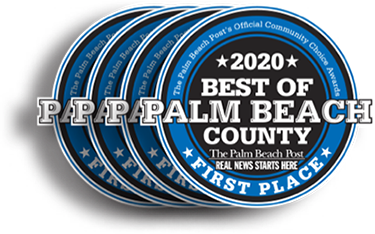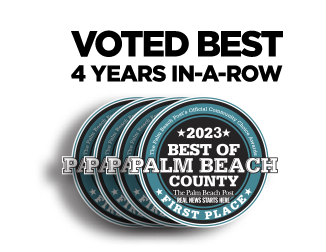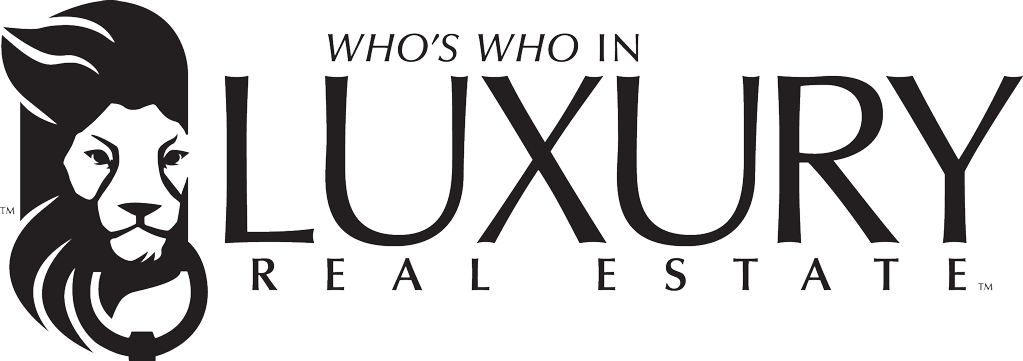Get Email Updates
Get an email the instant your dream home hits the market with your MyLogin account
Updated June 24, 2025 5:28AM EST








View exclusive Market Reports & Stats on your South Florida Community.
Get your Free Market ReportDetermine your home's estimated value based on ecent homes sales in your area.
The largest and most complete private directly of commercial listings not on the MLS. Contact us directly with your specific needs to see if we have a match.
Article First Appeared: https://www.themuse.com/advice/is-airbnb-profitable
Exploring different investment options is always a good idea. One that’s gained popularity, especially for those looking to dip their toes into real estate, is becoming an Airbnb host. It offers potential for passive income and flexible property management. But anyone considering the idea likely has questions: is Airbnb profitable for hosts? Do Airbnbs really make money?
To give you a well-rounded perspective, we’ve talked to a seasoned real estate developer and two experienced Airbnb hosts. They shared their insights and expertise, and together, we’ll uncover the key pros and cons of Airbnb as an investment.
Are Airbnbs a good investment? The truth is there’s no simple answer. Unlike traditional investments with predictable returns, Airbnb profitability depends on a variety of factors.
“You need to know your numbers,” says Jeff Lichtenstein, owner and broker of Echo Fine Properties. “This includes vacancies and month-by-month rates you can charge, since they differ with seasonality.”
Let’s break down the main factors to consider.
Location reigns supreme. A charming cabin in a popular ski resort town will likely see higher occupancy rates and potentially higher rental income compared to a studio apartment in a less tourist-friendly area. Market demand also plays a crucial role—a city with a business scene might attract more midweek bookings than weekend dates.
Keep this in mind when determining your rates, says Garrett Ham, who has been running an Airbnb rental property for more than over five years. “Analyzing competitors’ rates and my expenses ensured I didn’t underprice, especially in peak season where I charge 20% higher rates,” Ham says.
The type of property and its amenities also influence profitability. An apartment boasting luxurious features, like a pool or a jacuzzi, can fetch a higher price tag—especially during peak tourist seasons when demand is high.
On the other hand, a cozy, well-located studio can be an attractive option for solo travelers or couples, offering a good return on investment with less upkeep and fewer expenses. It can still attract budget-conscious travelers and maintain a steady occupancy rate year-round. So, there’s no one-size-fits-all recipe for success here.
Seasonality is another important factor that can significantly impact your earnings. A beach house might be booked solid in the summer but see lower occupancy rates in the winter. The good news is that there are some things you can do to mitigate this fluctuation.
“I automated pricing to match demand and made summer 20% higher than winter,” says Joe Stance, an Airbnb owner for 10 years. “I also offer business travel discounts midweek to increase year-round bookings.”
Profitability isn’t just about how much you earn; it’s also about how much you spend. It’s important to consider initial costs like furniture and renovations, but don’t forget ongoing expenses.
“A big mistake I see is not accounting for costs like maintenance, cleaning, and insurance,” Ham says. “New hosts should start small, maybe renting a spare room, to learn the business before expanding.”
Taxes also play a role and valuations might rise based on your Airbnb income, leading to higher tax obligations.
Running an Airbnb offers a unique set of advantages compared to traditional real estate investments:
While Airbnb can be lucrative, you should also know the drawbacks involved in becoming a host before diving in.
So, how hard is it to run an Airbnb? Well, it depends—especially based on where the property is located. Local regulations can throw a wrench in your Airbnb plans. Certain areas might have restrictions on short-term rentals, zoning limitations, or permitting requirements.
Spend some time researching local laws and regulations in your target area to avoid any legal complications. “The key factor for success is understanding local regulations inside out,” Stance says. “For instance, knowing that rentals are allowed in residential neighborhoods but not business zoning, so buying in mixed-use buildings opened more opportunities.”
It’s also important to note that some homeowners associations (HOAs) are not Airbnb-friendly. For example, some HOAs do not allow any short-term rentals at all, while others may impose restrictions such as minimum stay requirements, limits on the number of rentals per year, or additional fees and permits.
To determine if an HOA is Airbnb-friendly, it’s essential to review the community’s laws and regulations, which can usually be obtained from the HOA management or board. Additionally, speaking with current residents or HOA members can also give you insights into any potential challenges or restrictions.
“You also need to be aware of changes in HOAs. Townhomes or condos have larger special assessments,” Lichtenstein says.
The road to your success as an Airbnb host is paved with strategic planning, exceptional guest experiences, and a willingness to adapt. Here are some valuable tips to help you:
First impressions matter! High-quality photos showing your property’s best features are essential. Detailed descriptions highlighting amenities and the surrounding area will excite potential guests.
Don’t go in blind. Do thorough Airbnb market research. Analyze local demand for short-term rentals, identify your competition, and research their pricing strategies. This knowledge will empower you to set competitive yet profitable rates for your own listing.
Remember, happy guests are your best marketing tool. Prioritize clear and prompt communication with your guests throughout their stay. Ensure your property is sparkling clean and equipped with all the essentials. Consider adding thoughtful touches that elevate guest experience, making them feel welcome and comfortable.
Technology can be your best friend. Use property management software to manage bookings and communications, track financials, and even automate tasks like scheduling cleanings.
Airbnb typically charges hosts a service fee of about 3% for each booking. This fee may vary based on the specifics of the reservation.
Research local market trends and competitor pricing. Consider factors like location, amenities, seasonality, and demand. Tools like Airbnb’s pricing suggestions and third-party analytics can also give valuable insights.
Implement safety measures such as installing secure locks and smoke detectors, and providing emergency contact information. Conduct thorough guest screenings and keep clear communication regarding house rules and emergency procedures.
Check with your local municipality to understand any zoning restrictions or licensing requirements for short-term rentals. Understand tax obligations, including income taxes on rental earnings and any applicable local occupancy taxes. Consulting with a tax advisor can clarify specific obligations.
Respond promptly and professionally to negative feedback. Acknowledge concerns and offer solutions publicly while directing further resolution privately. Use constructive criticism to improve guest experiences and enhance future reviews.
It depends on location, demand, property management costs, and your ability to maintain high occupancy rates. In popular tourist destinations or urban areas with high demand for short-term stays, Airbnb rentals can generate significantly higher income than long-term rentals due to the ability to charge higher nightly rates. However, it’s important to consider additional costs associated with Airbnb, such as cleaning, furnishing, utilities, and platform fees.
Investing in Airbnb without owning property can be done through various strategies. One option is rental arbitrage, where you lease a property long-term and then rent it out on Airbnb, ensuring subleasing is allowed and complying with local regulations.
Another approach involves offering property management services for Airbnb properties. This includes bookings, cleaning, and maintenance in exchange for a percentage of the rental income.
You can also invest in Real Estate Investment Trusts (REITs) that focus on short-term rental properties or vacation homes. Another alternative is partnering with property owners: they provide the property while you take care of the management side.





Echo Fine Properties, winner of Best Brokerage of the Palm Beaches in 2020, 2021 and 2022, is located in Palm Beach Gardens, Florida. We are a family-owned local brokerage that prides itself on having the finest full time luxury real estate agents who know the area backward and forward. Each agent is hand selected to join us for their knowledge of the area including golf club communities, gated communities, equestrian and ranch estates, condominiums, and waterfront and boating estates. Echo is unique in real estate in that our company pays for all marketing, advertising, and all support which is handled in-house. WE PAY, which lets the agent concentrate on our customers. Unlike other firms, agents never have to compromise the marketing budget. Our Home ECHOnomics Guarantee offers an unheard of 57-promises. This website consists of 5 separate MLS feeds, giving 100% accuracy ranging from Miami to Fort Lauderdale to Palm Beach to Martin County.
© 2020, © 2021 and © 2025 Echo Fine Properties, All Rights Reserved. Powered by Neutrino, Inc. Authored by Jeff Lichtenstein
Use of this website and information available from it is subject to our Privacy Policy and Terms & Conditions
or Create your MyHomes account today?

In only 30 seconds you will have full access to property, community info and SOLD data you can't get anywhere else.
